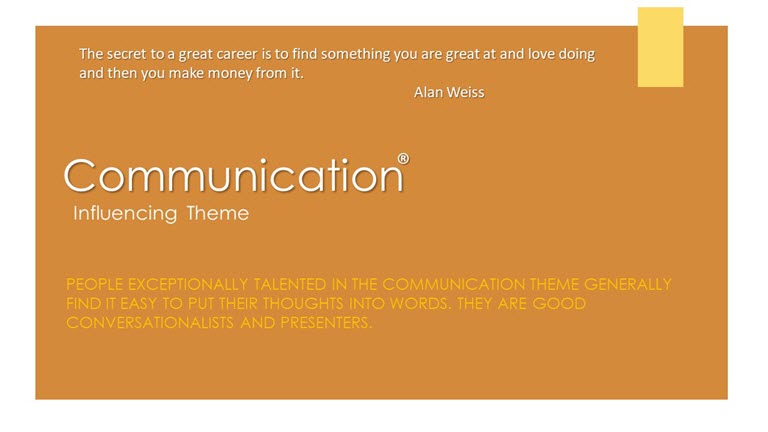
Self-Assurance® is a lot like self-confidence. Individuals with the CliftonStrength® talent theme of Self-Assurance possess a “Can do” mindset. Whereas most people spend their lives wondering if they are “good…

Self-Assurance® is a lot like self-confidence. Individuals with the CliftonStrength® talent theme of Self-Assurance possess a “Can do” mindset. Whereas most people spend their lives wondering if they are “good…

Are there people in your life that are consistently improving upon excellence, whether its career, leadership, or world-class entrepreneurship? Who do you know that is always enhancing, upgrading, and perfecting…

People with the Competition® strength love a good yardstick. Competition provides a measuring stick for monitoring one’s growth, and they thrive when they compete. They are forever on the lookout…

Do you know someone who enjoys sharing an entertaining story? Or someone who wordsmiths their conversation so people are inspired? People with the talent theme of Communication® express themselves with…